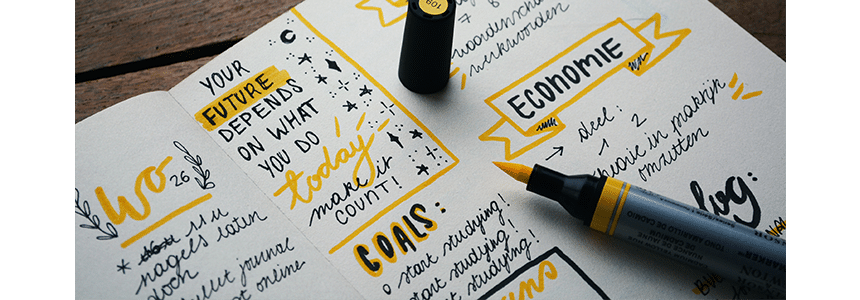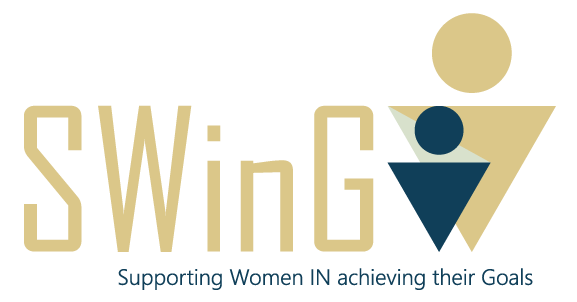
We are halfway through the first year of the SWinG project and a lot have been done already to advance Women into Leadership Positions in Sport.
SWinG is a timely new research and mentorship 3-year project co-funded by the Erasmus+ Sport Chapter of the European Union. It is designed to provide baseline data on the current state of women in leadership positions within sport and to propose creative new solutions to close the gender gap. The intended result: more diversity in decision-making roles.
The SWinG partners believe we should all work to advance women into decision-making positions in sport for “sport is too important for the next generation to leave half the world’s brainpower out of the conversation.”
On 24 and 25 June 2019, they will gather for the second time with the aim to further develop their action plan. As they are getting ready to travel to Brussels to collectively work on advancing Women into Leadership Positions in Sport, we are unveiling here some of the project’s first results.
And a first reminder to us all will be that even if gender inequalities are being reduced, the pace remains moderate. Indeed, according to Davos experts, under current conditions, substantive equality will not be achieved until 2186… Although it is one of the seventeen sustainable development goals set by the United Nations for the period 2015-2030.
This is our wakeup call… At the current pace; global warming is more likely to destroy Planet Earth than gender inequalities to be closed!
THE GLASS CEILING IS NOT A MYTH
Women’s representation in sports governance remains low. Analysis of the boards of 1600 National Sports Organizations from 45 countries between 2010 and 2012 via the ‘Sydney Scoreboard’ website has demonstrated a global average of just 19% of women in sports organizational boards. Among senior management positions with key decision-making roles, 19.7% of board directors, 10.8% of chairs and 16.3% of board executives were women (Adriaanse, 2016).
Our own SWinG Desk research on a sample of international, national and local sport orgnaisations has revealed that women board members represent an average of 25.9% of all board positions across all the 39 organisations surveyed. No significant differences exist in the numbers of women appointed to apex boards between organizations at the International, National and Local levels, with significant heterogeneity at each level. The percentage of women in key decision-making positions is lower than that across all positions on the boards, averaging only 18.7%. Around half of all organizations surveyed have zero women in decision-making positions
THE PORTRAYAL OF LEADERS AND THE SPORT CULTURE CAN BE A BARRIER
Hovden (2000b) outlined how that boards leaders in sport organizations are often expected to be results-oriented, cooperative, courageous, determined, impartial, and loyal. They also had to have a good reputation, extensive social, business, and political networks, and various organizational experiences. Collectively, Hovden (2000b) characterized this as a ‘male heavyweight’. All in all, it can be perceived as challenging to be a good female leader today and you must be well “equipped” to succeed: “Women often have to climb a glass mountain with solid mountaineering shoes” (Petit, Saint-Michel, 2016). Indeed, if the woman displays her female codes, this may be perceived as “lack of authority” and if she takes male codes, it may be perceived as “too aggressive”.
In addition, election procedures can be less than democratic than what it looks like on paper, and heavily reliant upon personal networks and informal selection procedures. These can include the employment of multiple ‘stages’ of vetting and shortlisting before an ‘actual’ election is conducted in order to shape candidate shortlists, which are in turn shaped by local laws such as quotas, and by the patronage (or absence of support) from existing members, particularly the president. Such processes can favour the appointment of insiders to sports organisations, and which, due to gender inequality at down the chain of governance, can mean a reproduction of gendered inequality.
BUT WHAT MAKES A GREAT LEADER?
According to John P. Kotter (Leading Change, 2012), the characteristics of a leader are the followings:
- Higher than average energy,
- Personal ambition and desire to make things happen,
- Intellectual capacity to manage quantity of information,
- Well-balanced mentally and emotionally,
- Personal integrity and clear personal values.
According to Jim Collins (Good to Great, 2001), a leader (woman or man) has the following qualities:
- Managing ambiguity (patience, perseverance, determination, influence techniques, alliances)
- Having personal humility (self-consciousness, social awareness, empathy), fierce professional resolve (physical & mental strength)
- Being a mentor (nurturing the seeds of potential through relevant experiences)
These characteristics are neither men nor women owned from our perspective! In fact effective leadership is task-relevant, and the most successful leaders are those who adapt their leadership style to the performance readiness (ability and willingness) of the individual or group they are attempting to lead or influence.
WHAT MORE DO THE WORLD OF SPORT NEED TO BE CONVINCED TO OPEN DOORS TO WOMEN… WELL MAYBE SOME EVIDENCES THEY ARE BRINGING IN BENEFITS
Evidence suggests that a more equitable and diverse workplaces in sports organizations can have a positive impact on sports organizations as a whole, particularly when upper management are perceived to support such policies (Spoor and Hoye, 2014, Perez-Rivases et al., 2017, Wicker et al., 2012).
In 2003, the European Commission already pointed out that 57% of companies identified women as “an essential source of skills”. Women represent new and under-exploited talents, bringing a new breath of fresh air, a new vision. Today, gender diversity allows the fusion of the masculine and feminine and makes the individual stronger and the organization more agile.
Sports industry cannot deprive itself of female talent: “competency does not have sex”. “waste of talent” needs to stop because this is powerful to share different experiences, skills and perspectives.
With SWinG we will create solutions and open the doors for women in sport.
Should you want to know more, have a look at our special “The Case” page.

